Charger E-SYB S6
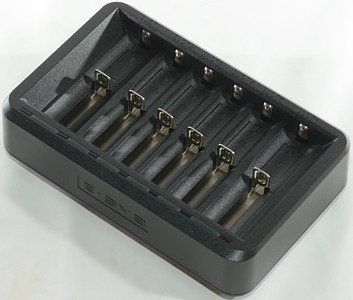
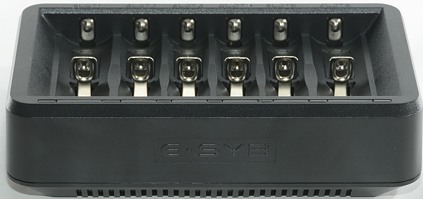
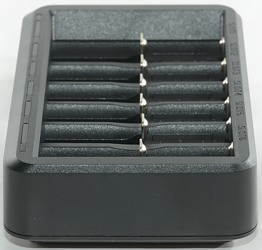
E-SYB is new in the charger market, here with a 6 slot charger that can handle LiIon and NiMH and has two currents making it possible to charge a wide range of LiIon cell sizes.
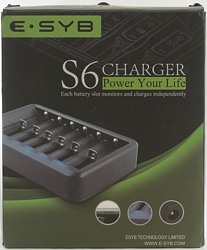

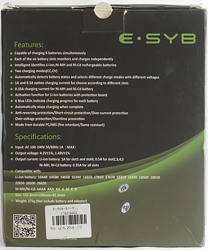

The charger comes in a cardboard box with specifications on the backside.
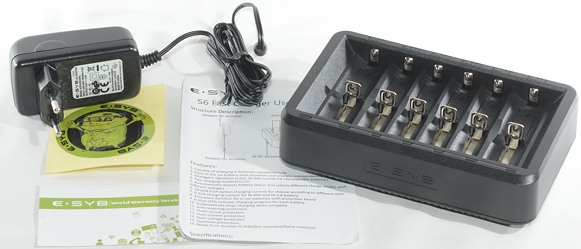
In the box is the charger, a power supply, a manual, a warranty card and a E-SYB sticker.
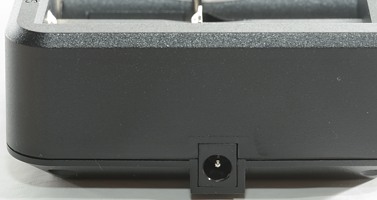
The charger is powered from 9 volt, i.e. no support for car adapters.
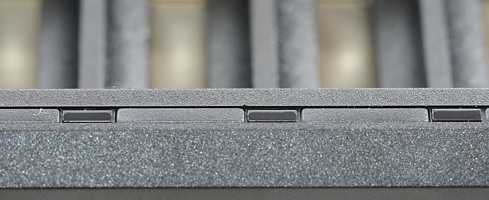
Each slot has a blue led to indicate charge status:
Fast flashing: Charging.
Slow flashing: Charging nearly done (Supposed to be >90%).
Steady: Charging done.
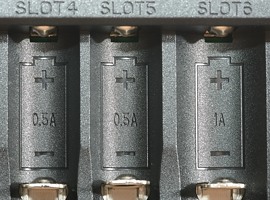
Charge current depends on slot and they are clearly marked. The current is only valid for LiIon with NiMH a lower current is always used.
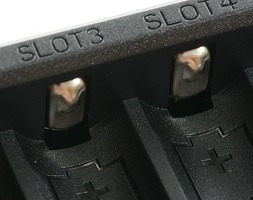
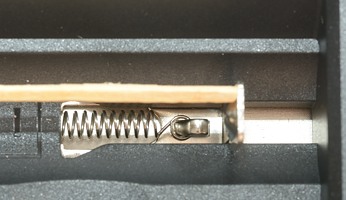
The slots are the usual slider construction and works very good.
The can handle batteries from 32mm to 71mm, this will handle just about any cell.
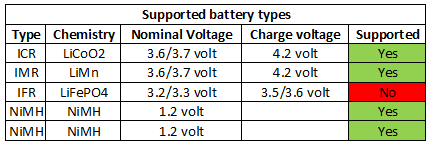
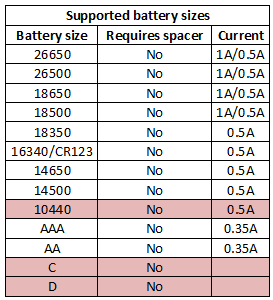
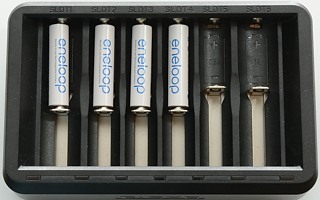
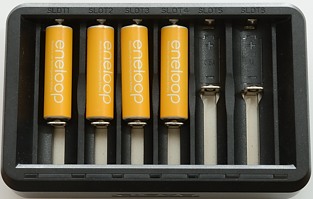
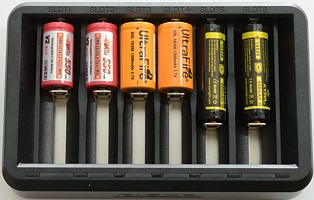
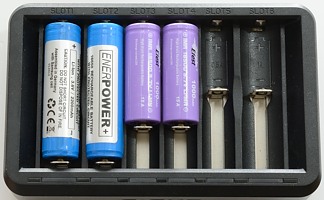
The charger can handle 71 mm long batteries including flat top cells.
Current is a bit to high for 10440 cells.
C cells will slide of the positive connection and D cells do not connect to the positive connection.
Measurements
- When not connected to power it will discharges with up to 6mA for LiIon and 1.6mA for NiMH.
- When the battery is full the charger will will discharges with up to 4mA for LiIon and 1.2mA for NiMH.
- The charger will not restart if the voltage drops.
- Power cycling or reinsertion of the battery will restart charging.
- At about 0.8 volt the charger will detect a battery and start charging
- At about 2 volt the charge will assume LiIon.
- Power consumption when idle is 0.43 watt
LiIon
%20%231.png)
The charge curve is CC/CV, but the voltage is a bit on the high side, the same is the termination current. The two problems compensates for each other and the battery ends up with a fairly good charge.
%20%232.png)
In this slot the charge current is lower, the termination current is also lower, even the charge voltage is lower. it looks like a good CC/CV charge.
%20%233.png)
%20%234.png)
%20%235.png)
%20%236.png)
All slots is a bit high on voltage, with the 0.5A slots the termination current is fine, but on the two 1A slot it is a bit high.
%20%231.png)
%20%231.png)
Again the voltage an termination current is on the high side.
%20%231.png)
Same with the old battery, but the voltage is high for longer time.
%20%232.png)
%20%232.png)
The voltage is much better with the smaller cells and lower current (Slot #2 is good on voltage).
.png)
And with 6 batteries in the charger. The voltage and current sensor in on slot #2, the temperature is highest while slot #1 and #6 is charging at 1A and drops when they are finished.
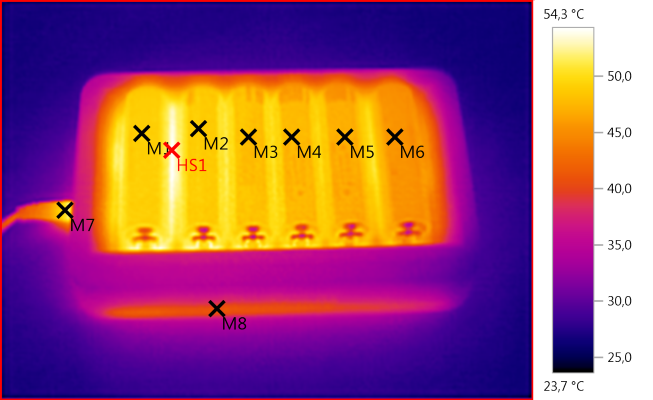
M1: 49,1°C, M2: 49,1°C, M3: 47,7°C, M4: 47,8°C, M5: 46,8°C, M6: 45,6°C, M7: 50,4°C, M8: 40,7°C, HS1: 54,3°C
The charger gets fairly warm, especially where the power is connected!

M1: 56,5°C, HS1: 62,6°C
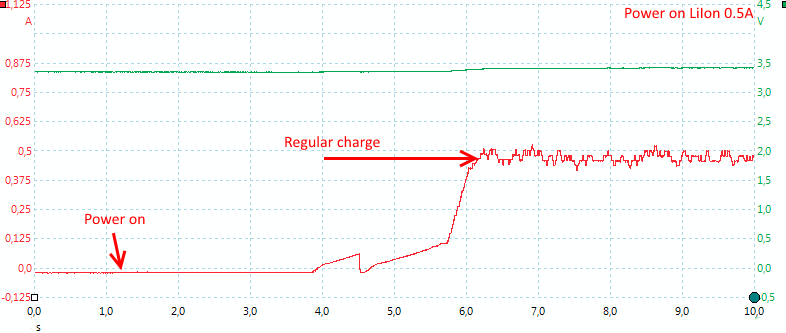
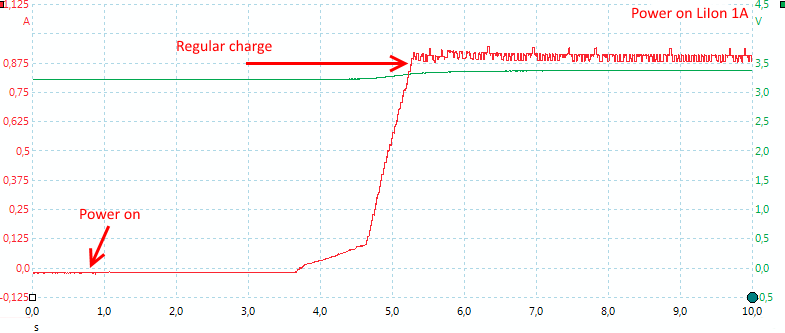
The charger needs about 5.5 second to start.
NiMH
%20%231.png)
With NiMH cells the charge current is fairly low and it uses voltage termination. The voltage termination is at a low voltage that prevents the cells from being fully charged (There is no temperature increase).
%20%232.png)
%20%233.png)
%20%234.png)
%20%235.png)
%20%236.png)
All 6 slots uses the same current and termination, but some slots drops the current to a lower value when the batteries are nearly "filled".
%20%231.png)
%20%231.png)
%20%231.png)
The charger works the same way with the high capacity cells.
%20%231.png)
The AAA cell is the same, again the charge is stopped a bit early.
%20%231.png)
For a voltage detection this charge is fairly slow to detect a full cell, maybe due to the low charge current.
.png)
The charger works the same way with all 6 slots loaded.
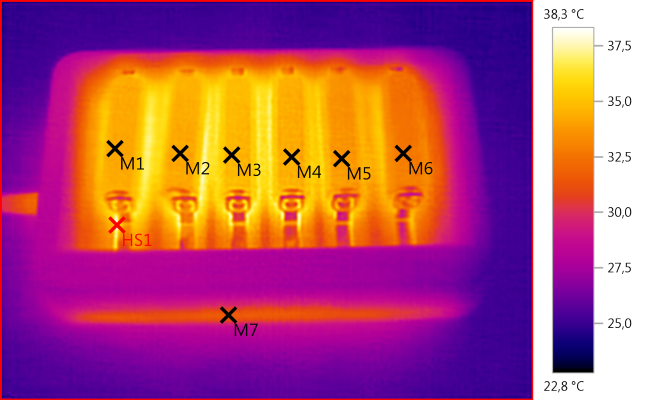
M1: 34,4°C, M2: 34,1°C, M3: 34,7°C, M4: 34,2°C, M5: 33,9°C, M6: 32,8°C, M7: 31,5°C, HS1: 38,3°C
With the low charge current the charger stays cool during the charge.
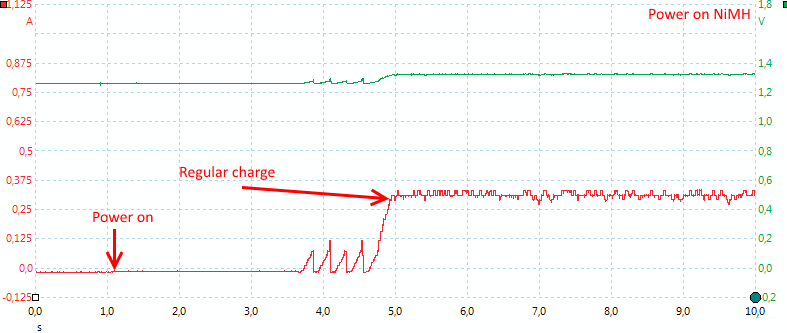
The charger uses the same 5.5 second to start with NiMH.
Testing with 2500 volt and 5000 volt between mains and low volt side, did not show any safety problems.
Conclusion
I am not very impressed with the status indicator leds, when I fill empty 6 LiIon cells in the charger they will not all flash at the same speed (Slot #1 & #6 is diffent).
Due to the small over voltage and high termination current on slot #1 and #6 I will only call LiIon charging acceptable (Slot #2 to #5 are good).
NiMH is also acceptable, the charger do not fill the batteries completely and is fairly slow to charge.
Notes
The charger was supplied by Gearbest for review.
Here is an explanation on how I did the above charge curves: How do I test a charger
Read more about how I test USB power supplies and chargers



















%20%231.png)
%20%232.png)
%20%233.png)
%20%234.png)
%20%235.png)
%20%236.png)
%20%231.png)
%20%231.png)
%20%231.png)
%20%232.png)
%20%232.png)
.png)




%20%231.png)
%20%232.png)
%20%233.png)
%20%234.png)
%20%235.png)
%20%236.png)
%20%231.png)
%20%231.png)
%20%231.png)
%20%231.png)
%20%231.png)
.png)

